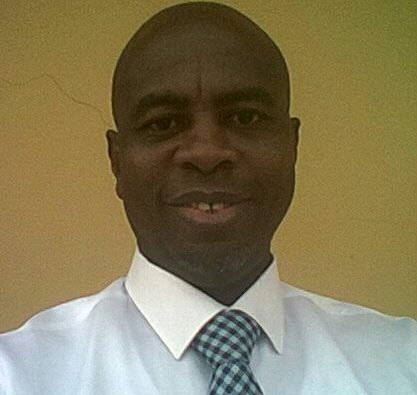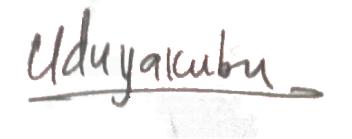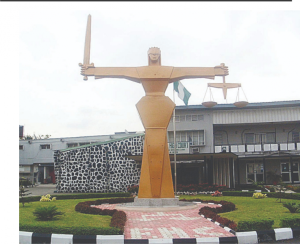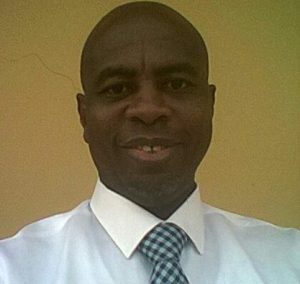
The military is a thing and place of pride – a national pride! Watching many military parades, the men in starch-embalmed uniforms often command from the on-looking public a temptation to join the ranks of the marching soldiers. The army, and indeed the entire military of Nigeria, has been at such commanding heights of national pride. From Independence Day parades and the Armed Forces Remembrance Day to many other ceremonial military outings of national grace, the Nigerian military has always commanded the admiration of the Nigerian populace, and of the citizens and leadership of other neighbouring and distant African countries. Surely, the West African region will not forget in a hurry the exploits of the Nigerian military in ending the wars in Sierra Leone and Liberia, and restoring peace, law and order to these countries. As member of the Economic Community of West African States (ECOWAS) and the then Organisation for African Unity (OAU), Nigeria and its military forces were the beautiful bride of peacekeeping and the dream and symbol of a secure region and continent.
Essentially, what distinguishes the military from most other professions is the manner in which it conducts, and is expected to conduct, itself. This is often based on well written codes of conduct which members of the various services must strictly adhere to in order to achieve the level of discipline, focus and respect that society looks up to it for. Apart from the government which directly funds the military, these expectations cut across the circles of tax payers who like to see the military accountable and justify the degree of spending that goes into funding it. There is yet the general citizenry who want, at all times, to feel a sense of security from any external threats against their own homeland. The latter group further consists of the civil society, including human rights activists who think it is within their own purview to demand accountability from both government and the military from time to time. Beyond developing the mindset of war and preparing for it, the military also updates and upgrades its own service by conducting self-assessments on itself, and by analysing the trends of normative behaviour in local, national, and global military affairs and military history.
Read Also: Eastern Security Network: Tackling The Yeast of Rebellious Biafran Separatism
Besides working hard to secure the country from external aggressions, the Nigeria military, for instance, bear other responsibilities within the context of international relations, which include peacekeeping. Nigeria first volunteered UN peacekeepers to Congo (ONUC) in the period between 1960 and 1964. Ever since, Nigeria has participated actively in United Nations peacekeeping missions. In this role, she has also deployed military contingents, unarmed military observers, military staff officers, police units, police advisers and civilian experts to more than 25 UN missions. According to a peacekeeping report, Nigeria is currently one of the largest UN contributing countries with military and civilian personnel deployed in 10 UN peacekeeping operations and the African Union Mission in Somalia (AMISOM).
Also, Nigeria has played essential roles in other non-UN missions in Africa. As a dominant power in West Africa, she has been the main provider of military and other resources for ECOWAS peace operations to the tune of US$8 billion (about 3 trillion naira by today’s exchange rates) in its various missions in Cote d’Ivoire, Guinea-Bissau, Liberia, Mali, and Sierra Leone. During the peak of the Liberian and Sierra Leonean civil wars in the 1990s, Nigeria provided over 70% of ECOMOG’s military and civilian personnel, as well as logistical support.
However, with contemporary Nigeria, the events of the times tend to shape a new direction of public thinking. More than at any other time, there seems to be growing efforts to politicise the nation’s military as issues of national security have already been. Different social, ethnic and political groups appear to be convincing themselves that they have a say in what should happen in the Nigerian military and how issues around the insecurity in the country should pan out. Worthy of a commentary is that, the agitations across the Nigerian sociopolitical and ‘ethnic’ landscapes for the removal of the Service Chiefs, are well beyond the sphere of influence of any political, social or cultural group. It seems the Nigerian civilian ‘volunteers’, in the forms of civil rights activists, political analysts and social commentators are only doing so much to influence issues that are, for the most part, constitutionally defined and in many cases within the prerogative of presidential powers.
People who think this is a matter of fiat or political whims, as it sometimes was with a military government, should have a rethink in order to gain clearer, balanced and more objective perspectives of the issues. In Nigeria’s earlier years when the country had a lesser population and minimal instances of conflicts to deal with, the country had more than enough to spend on its military. Indeed, the country was not so rich, but she prosecuted and won the Civil War to keep Nigeria together by spending money. The defense budget rose from 1.10% of the GDP in 1966 just before the war, to 5.1% of the GDP in 1967 when the war started, and reached 10.32% of the GDP in 1969 when the war had to be decisively won. By January 1970, the rebel troops knew that it was game over. The contrast is that from 2009 when the war against insurgency assumed worrying dimensions till the present day in the year 2020, Nigeria’s Defence budget has consistently remained below 0.6% of the national GDP. In fact, from 2012 to 2017, funding of the Nigerian military was on a steady decline.
The tragedy of our condition is that most Nigerians, including many of the leaders, know that there are security issues in the northeast and the northwest, but they do not know that the country is at war. At the risk of being so simplistic, it has to be reiterated that Nigeria is in a state of war! And we cannot afford to play politics with our military.
The crisis of an underfunded military significantly explains the inadequate capacity to effectively prosecute and win the war in the northeast and the northwest. The implications of the funding problem include the sheer lack of human numbers to over-run and crush the insurgents, the inadequacy of weaponry and equipment, the inadequacy of intelligence, and the inadequacy of technology to drive the processes. Against this backdrop, it is laudable that the Nigerian military has worked against many odds in helping the overwhelming majority of Nigerians to go to bed every night with their eyes shut. The irony is that every good thing that is steady becomes ‘commonised.’ Nigerians in the theatre of war in the Northeast and the Northwest can relate with the import of this analogy, just like Nigerians of the Biafran fame! It cannot be gainsaid therefore that the nation should be grateful to the military for the much that has been achieved, while we urge and encourage them to do much more and complete the job at hand.
The constant inability of the military’s and government’s critics to see and understand the dimensions at play often gives the impression of deliberate and serious attempts to politicise the issues of security. A regular strategy of distraction has been the recurring attacks on the Service Chiefs. While it is true that, in the past, most of the Service Chiefs had served only between one to three years, the country has also had cases when Service Chiefs served for more than these periods of time. Chief of Naval Staff, Commodore A.R. Kennedy, served a six-year tenure that spanned from 1958 to 1964. Vice Commodore J.E.A. Wey was Chief of Naval Staff for nine years, from 1964 and through the Civil War years to 1973. Vice Admiral M.A. Adelanwa served as CNS for five years between 1975 and 1980. Generals David Ejoor, T.Y. Danjuma and Sani Abacha were in office as Army Chiefs for between four to five years. Appointments to the offices of service chiefs, and the tenures thereof, have always been a presidential prerogative, and so it has remained in the Nigerian Constitution.
Efforts by ethnic and other interest groups to interfere in pure military business has also reflected in the recent court martial of the erstwhile General Officer Commanding 8 Division, Sokoto, and the deployment of the erstwhile Theatre Commander of Operation Lafiya Dole. The cases against them bordered on the transgression of critical civil and military codes. It is a breach of military ethos, for example, for any officer in the theatre of war to produce and circulate to the public a video of happening in the theatre, not to talk of the commander being the culprit. The military should be spared the malaise of ethnic organizations and their spokespersons seizing the media to expressing support and solidarity for their kith and kin in the face of military discipline. In spite of its own challenges and shortcomings, the Nigerian military remains the most discipline public institution in the country today, and the nation should do all it takes not to drag the military back into politics.
Read Also: A Different Military: From Chibok Girls to Kankara Boys
The President and military high command owe the nation the duty to keep focused rather than fall into the veiled trappings of politically motivated ‘suggestions’ and ‘counsels’ from social, ethnic and political interest groups who cross the boundaries of engagement to seek to politicize the military. The military particularly must keep strictly to its professional ethos and restrain itself from being unduly tolerant to political considerations. Military operations, for example, don’t have to be announced in the media before or just after commencement; catching the enemies unawares and crushing them should not be sacrificed for the convenience of the public knowing what missions the military is about to embark upon.
Yet, we cannot foreclose the point that the civil populace, as of right, should continue to demand for and insist on good governance and adequate security for every Nigerian everywhere, and to call the military to order in instances of abuse. But, while rights and accountability are being demanded of the President and the military, genuine stakeholders in the Nigerian nation should understand and keep within the limits of constructive engagement.

Dr Udu Yakubu

